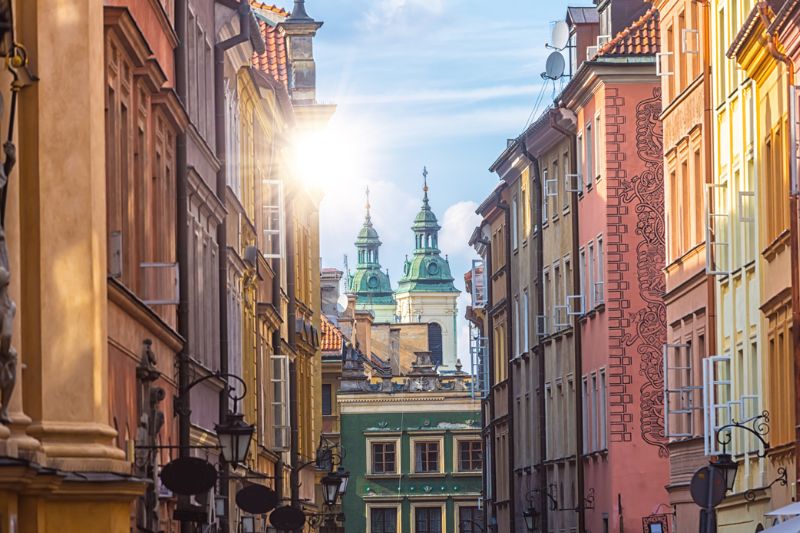My second visit to Warsaw, Poland’s biggest city, and I am incredulous. I was incredulous during my first visit, which took place in the middle of winter: then I was very glad of my ancient Loden coat as I experienced serious cold for the first time in my life. I saw bare ruined choirs of trees and garden plants swathed against the snow, and pedestrians often muffled to the eyebrows. I had read about spring in northern Europe, but the total transformation a few short months later astounded me. ‘It all happens in the space of three weeks,’ said my middle son, who lives and works in this most appealing and walkable of cities.

Whereas the parks and gardens had been almost deserted in late January, in late May they were crowded with walkers, picknickers, families and people of all ages simply set on enjoying the balmy weather: Warsaw was hotter than Athens on some days of my visit, and people were barbecuing, using single-use equipment available from supermarkets. A huge celebration of life was going on, and part of that celebration consisted of young people playing football and volleyball.
‘Do the Poles have a game of their own?’ I asked, thinking of Australian Rules and Gaelic football, hurley, boules, and the cricket matches in Regent’s Park, London. My offspring’s reply was rueful. ‘I don’t think they’ve got anything much of their own,’ he said, ‘apart from an awful history of occupation and partition.’ My knowledge of Polish history is sketchy to say the least, but I knew he was right. I jogged my memory later, and yes, there were three partitions of Poland in the late eighteenth century alone, as the Russians, Prussians and Austrians got to work: after the last partition, which took place in 1795, sovereign Poland ceased to exist.
Fast forward to 1939 and the Nazi invasion, which many Poles label the Fourth Partition. Poland lost a fifth of its population during the war, and three million Jews perished in notorious camps and ghettos. And Hitler was so outraged by the Warsaw Uprising of 1944, an exercise in ultimately futile bravery, that he gave Heinrich Himmler the task of razing Warsaw to the ground. When you view photos of Warsaw after this monstrous exercise had taken place, you realise what a miracle the modern city, painstakingly reconstructed, is. I was suddenly reminded of an Australian traveller I once heard of who cut short his trip to Europe and gratefully returned home. Europe is a continent soaked in blood, he gave as the reason for his return.
I was also reminded of school writing exercises, part of childhood all those long years ago. My schoolmates and I wrote numerous times, in what we hoped was faultless copperplate, Australia, the Island Continent. I don’t think we ever considered the implications of this phrase very much, if at all. And our thinking was inevitably conditioned by our consciousness of another island, that ‘precious stone set in the silver sea.’ That sea served England as a wall, and we eventually realised that Australia had the same privilege. The English and Scots might resent each other, and Sydney and Melbourne might bicker and quarrel, but these were petty comparisons when we eventually learned something about Europe’s chequered history and its shifting borders, and they seem to have shifted often throughout history.
I returned to Greece and was not really surprised by a news item a few days later. Donald Tusk, Prime Minister of Poland, announced that his government plans to spend two and a half billion dollars on reinforcing the borders Poland shares with Russian Kaliningrad and Belarus. Tusk sees Poland as being responsible for European security, and also considers the influx of immigrants, many of whom have Russian passports, as an attempt to destabilise Poland: last week, a Polish soldier was stabbed through the Belarus border fence. (I think that Polish politicians, knowing their nation’s troubled history, must have particularly heavy burdens to bear, and often sleepless nights.) The so-called buffer zone on the Belarus border is to be reintroduced and the presence of drones is to be significantly increased along both borders.
It is a very long time since I wrote about the island continent, and the world has become a very different place since then, but I’m still glad I was born in a country without borders.
Gillian Bouras is an expatriate Australian writer who has written several books, stories and articles, many of them dealing with her experiences as an Australian woman in Greece.
Main image: (Getty images)